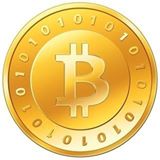As the number of mobile phone subscribers in Ghana increases, so does the market for mobile money services. Yet, the majority of Ghanians lack any formal bank account.
An estimated 80 percent of Ghanians are “unbanked” –meaning they conduct their transactions outside the banking sector, with no access to conventional financial services. Products like “mobile money,” that enable safe and secure money transfers without the use of a bank account, could have a major positive impact on this unserved segment of the population. Mobile money gives anyone with a mobile phone the ability to transfer money, make cash payments and conduct other financial transactions over the phone, in the same manner that
37coins Gateway works with Bitcoin.
Mobile Money is a cash management service available via mobile phone or the internet, and is mainly about facilitating money transfer for the Ghanaian market. The service can also be used for reloading of airtime units, and for payment of utility bills, goods & services. The service is available to both mobile and non-mobile users.
The Mobile Money system is comprised of individuals (subscribers) and merchant wallets. Wallets (individual & merchant) are created with the selection of a four- digit Mobile Money PIN after the registration process is completed on the phone. The Mobile Money PIN is required to authorize all Mobile Money transactions. No single transaction can be completed without the Mobile Money PIN. Wallet transactions for Mobile Money are in Ghana cedi and are centralized.
Mobile money is a relatively new phenomenon in Ghana. It was first introduced by the telecom company MTN five years ago. MTN Mobile Money operates in partnership with some of the banks in the country. Currently, more than 2 million Ghanaians are registered as active users, with about 3million non users. MTN expects this number to grow as a result of the resources they have committed to educating subscribers and the general public to be precise, about switching from the traditional mode of cash payments to electronic payments. Likewise, about 4 years ago, Airtel became the second mobile operator to provide mobile money services through the introduction of ZAP now called Airtel money.
The digital currency, Bitcoin, could be an alternative to mobile phone payment systems in Ghana, such as MTN Mobile Money, Airtel Money or Tigocash. Bitcoin transactions occur when a buyer uses software to encrypt a specific number of virtual coins with a code. The buyer then affiliates that code with a seller’s public key or “address”, and once a transaction occurs, the software broadcasts to the Bitcoin network that the particular amount of coins are owned by the seller.
BITCOIN ADVANTAGES OVER TELCOS MOBILE MONEY
Bitcoins have several advantages over mobile money. They can be traded across international borders, while mobile payment systems are limited to money transfers within the country and you are also obliged to keep Ghc10000 as the maximum fund you can save in your wallet but Bitcoin is opposite to it as you can save any amount of money equivalent to Bitcoins in your wallet. Additionally, those transactions typically take seconds to complete, versus days or weeks through current banking systems, and similarly are done for little or no fee, versus the expensive fees charged by banks and services such as Western Union. Furthermore, mobile payment systems are tied down to telcos or banks, while Bitcoins work on a decentralized model that is independent of the central banking system.
BUSINESS OPPORTUNITIES
Ghana, in particular, presents potential opportunities for Bitcoin exchanges, as the mobile money market in the country has taken off. I was able to receive Bitcoin on my mobile phone number in Ghana from Johann Barbie, the developer for 37coins in the USA when I was first introduce to the SMS mode of Bitcoin transactions that is being offered by http://www.37coins.com.
I was really surprised and amused when I was able to send Bitcoin worth of my country’s currency to my various friends’ phone numbers within only a few minutes. In response, they called me and told me that this is the best solution for Ghanaians living abroad, in terms of remittances, assuming an exchange center is in operation in this country. Ghana offers a test bed for some Bitcoin business models that may very well flourish.
The conditions could be right in Ghana for this to occur, because reliance on traditional banking infrastructure is weak and mobile phone usage is high. Bitcoin will help trade activities within the country and foster strong business partnerships with international entrepreneurs. The widespread use of Bitcoin by merchants in places where traditional banks cannot go, also contributes to bringing people into this new model of financial freedom transactions. It also bridges the existing huge gap between the unbanked and the financial sector, and since the currency is already inherently digital, building a payment platform on top of it should be relatively easy.
Furthermore, since it is a decentralized peer-to-peer system, everyone has the ability to become their own payment processor (or bank…), on mutually agreed upon terms between themselves, rather than as dictated by the traditional banking system, which becomes an unnecessary third party to such transactions.
